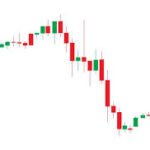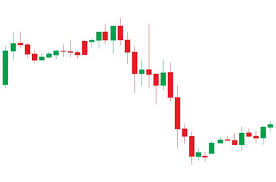Last Updated on: 21st July 2024, 11:16 am
Insight for Forex Traders on Housing Market Crashes
A housing market crash can have significant implications for forex traders, given the interconnected nature of global markets. Understanding the dynamics of such a crash and its potential impacts can help traders make informed decisions. Here’s a comprehensive insight into what forex traders should consider when a housing market crash occurs.
Understanding the Housing Market Crash
A housing market crash typically happens due to a significant drop in demand for homes or an oversupply, leading to plummeting home values. This can be triggered by various factors such as economic recessions, high unemployment rates, or rising mortgage rates. The crash in 2008 serves as a stark reminder, where home prices dropped over 15% in a year.
Indicators of a Potential Housing Market Crash
- Economic Recession: A deep recession can lead to job losses, reducing the ability of people to buy homes.
- High Mortgage Rates: Increased mortgage rates can make homes unaffordable, dampening demand.
- Oversupply of Homes: An excess of available homes can lead to decreased prices.
- Rising Unemployment: Higher unemployment rates can result in increased foreclosures and reduced home buying power.
- Economic Shocks: Major economic disruptions, such as stock market crashes or prolonged job cuts, can signal the beginning of a housing market crash.
Impact on Forex Markets
A housing market crash can influence forex markets in several ways:
- Currency Depreciation: A housing crash often leads to economic instability, causing the affected country’s currency to depreciate. For instance, the 2008 crash saw a significant weakening of the US dollar as investors sought safer assets.
- Central Bank Policies: Central banks may lower interest rates to stimulate the economy, affecting currency values. For example, the Federal Reserve’s actions during the 2008 crisis led to lower interest rates, impacting the USD.
- Investor Sentiment: A crash can shift investor sentiment towards safe-haven currencies like the US dollar, Japanese yen, or Swiss franc.
- Global Spillover: Housing market crashes in major economies can have global repercussions, affecting currencies of trading partners and interconnected economies.
Strategies for Forex Traders
- Monitor Economic Indicators: Keep an eye on key economic indicators such as unemployment rates, GDP growth, and housing market data. These can provide early warnings of potential market shifts.
- Stay Updated on Central Bank Policies: Understand how central banks are likely to respond to economic downturns. Interest rate cuts or quantitative easing can have significant impacts on currency values.
- Diversify Portfolio: Diversify your investments to include safe-haven currencies which tend to appreciate during economic uncertainties. This can help mitigate risks.
- Leverage Technical Analysis: Use technical analysis to identify trends and potential reversal points in currency pairs. Historical patterns during previous housing market crashes can offer valuable insights.
- Risk Management: Implement robust risk management strategies, such as stop-loss orders, to protect your investments from sudden market swings.
Learn more
How a Trader Can Learn From Market Biofeedback
Apple’s AI Innovations Propel Stock to Record High, Signaling Market Shifts
What to Watch For
- Government Interventions: Government policies aimed at stabilizing the housing market can influence currency markets. For example, stimulus packages or mortgage relief programs can affect economic stability and currency values.
- Global Economic Conditions: Keep an eye on global economic conditions, especially in interconnected markets. A housing market crash in one country can lead to ripple effects globally.
- Investor Behavior: Track investor behavior and market sentiment. Shifts towards safe-haven assets can provide opportunities for strategic currency trades.
Preparing for Market Volatility
- Stay Informed: Regularly update yourself with news and analysis from reliable sources. Understanding the broader economic context can help you anticipate market movements.
- Utilize Economic Calendars: Economic calendars can help you keep track of important dates and events that could impact the forex market.
- Adopt a Flexible Trading Strategy: Be ready to adapt your trading strategy based on evolving market conditions. Flexibility can help you capitalize on emerging opportunities and minimize losses.
Conclusion
A housing market crash, while challenging, presents both risks and opportunities for forex traders. By staying informed, monitoring key indicators, and employing strategic trading practices, you can navigate the complexities of the forex market during such turbulent times. Remember, the key to success in forex trading lies in understanding market dynamics, anticipating changes, and making informed decisions based on comprehensive analysis.










